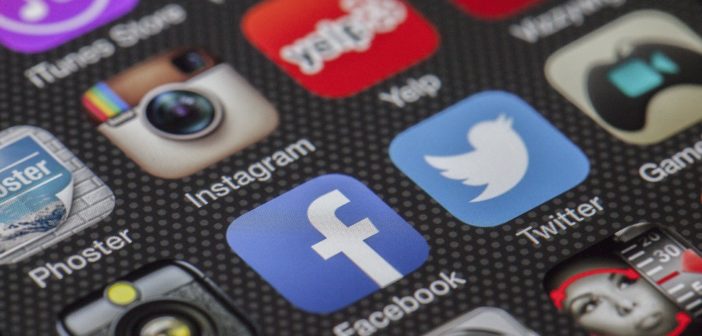By Brianna Llewellyn, Staff Writer
In recent years social networking has become a major part of everyday life for millions of people around the world. With the advancement of hand held technology and the convenience of smart phones it has become easier and easier for one site in particular to play an integral role in the way we use the internet today. Whether it be reading the news, filing taxes, online shopping, or even just listening to music, Facebook has managed to make itself a part of the mix. On just about any well-known website a person can think of it is possible to sign in or sign up with just a Facebook username and password. Users are able to click a little blue button to share their experiences with up to 5000 friends, family members, and coworkers.
Facebook has almost become synonymous with the phrase “social networking”. However, even though Facebook dominates social media there are a few other social networking sites gaining popularity and quickly becoming fair competitors. For example, Twitter was created in 2007. Today twitter has about 232 million users monthly, and has been able to invest a considerable amount of money into up and coming video sharing apps such as Vine. Vine has over 40 million active users, and was the most downloaded application in the apple App store in 2013.
Still, Facebook has purchased a few social networking giants as well, such as Instagram and WhatsApp. Instagram is a picture sharing app characterized by its visual status updates and has over 200 million active users. Instagram was founded by Kevin Systrom and Mike Kreiger in 2010, and was sold to Facebook for one billion dollars by 2012. Since then Instagram has slowly but surely become the home of the selfie. Selfies alone account for over 57 million photos shared on the popular photo sharing app.
WhatsApp is a free messaging app used by over 450 million people across the world. WhatsApp is an ad-free messenger experience in which users can get straight to the meat and potatoes of the matter, user to user communication. The amount of WhatsApp messages sent daily is slowly approaching the amount of SMS messages other smartphone users send. For this reason, in 2012 WhatsApp was purchased by Facebook for 19 million but still remains independent in order to preserve a simplified ad-free social networking experience.
With so many ways to avoid actual human contact one may wonder what such an influx of virtual interactions might mean for the future. What effect does this endless stream of data have on mental health and self-esteem? Will face to face social interactions become a thing of the past? A few people around campus were asked and this is what they had to say.
“A majority of my good friends and a majority of my relationship started via social media” said college graduate Dean Morris.
On the other hand, another graduate was able to identify a significantly dangerous factor. “It’s a double-edged sword it has its advantages; but it causes a problem, people don’t live anymore everything is for social media “, said Franuet Filipe.
This is the concern of many social media users. Another concern is how a person’s newsfeed can change their mood, without them even knowing. “I get anxious about my life because then I start judging myself and I’m like, I’m not doing enough” said student, Kayla Lee. These are features of social media that we should all be aware of when browsing.
“Social Media keeps you in touch with people, which you don’t necessarily get to see every day”, said Dujon Wright. Although this may be true it is important to take precautions to avoid becoming engulfed in the wonders of online social interactions.





